Our support
The London Hip Unit is unique in the extensive level of support it offers its patients. We have a committed team of dedicated doctors and nurse-specialists who are on-hand to provide patients with individual advice. Patients are able to contact The London Hip Unit during office hours to arrange to speak to a nurse specialist or doctor about any relevant concerns.
Visiting The London Hip Unit for surgery
When you visit The London Hip Unit for surgery, you will have an hour-long appointment (up to 1hour 30minutes if X-rays are required) with the Nurse Specialist to discuss your medical history, your recovery after the surgery, equipment, home circumstances and any worries you may have regarding treatment and recovery. The nurse liaises with the anaesthetist regarding your medical history and test results, and the anaesthetist will then decide if you are fit for surgery.
When you book in for surgery with us you will be provided with The London Hip Unit’s ‘Guide for Patients’. This provides very comprehensive information on what you need to know before and after surgery, and is essential reading.
During your hospital stay, you will be visited by your consultant and The London Hip Unit registrars (doctors). Specialist nurses will visit you daily following your surgery and are always on-call to answer your queries.
All members of The London Hip Unit team work in conjunction with each patient’s GP, provided consent is given. Strict confidentiality is always maintained.
Following surgery, you can also contact the hospital in which your operation took place.
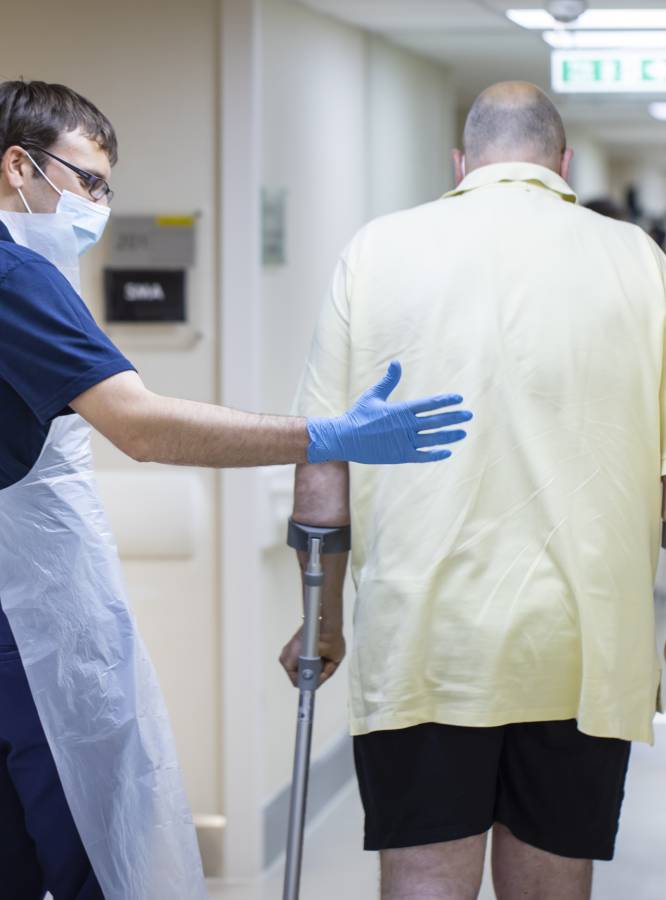
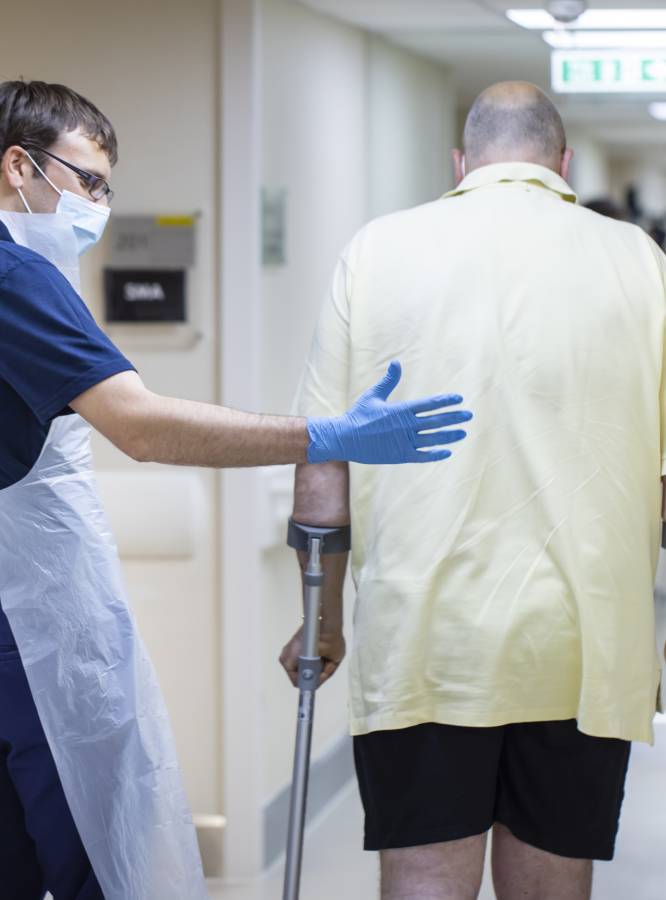
Pre-op information
A surgery date will be arranged that suits you and gives you time to make arrangements for the recovery period of around 4-6 weeks. You will also be given a pre-surgery assessment appointment with the nurse specialist for three or more weeks before your surgery date. You can contact the nurse specialist at any time before your appointment to discuss any concerns you may have about your treatment.
Pre-surgery assessment
You need to be assessed before your surgery to ensure you are fit and well before being given anaesthetic and to make sure you feel as prepared as possible for your forthcoming surgery. This will take up to one hour but may take up to one and a half hours if having X-rays taken. You can eat and drink normally beforehand and we will let you know what you need to bring with you.
We will ask you about your medical history and any medications you are taking. We will take any tests that are required, usually an ECG and blood test, at the pre-assessment. If we find any abnormalities, we will let you know and try to correct them prior to surgery.
If it is clinically indicated, it might be necessary for patients to be reviewed by the anaesthetist before the day of surgery and, if so, arrangements can be made for that to occur at The London Hip Unit.
We will also talk to you about any of your medication that needs to be stopped before surgery, what you can expect after the surgery, what you can do to prepare for surgery, advise you on any equipment you may need, and answer your questions.
You will be given our ‘Guide for Patients’, which provides most of the information patients need to know and ask most often about their surgery. It is important that you read this as it includes essential information.


Planning for your recovery
It is essential to plan for your recovery period before you go into hospital. You will need help at home for the first few weeks following surgery as your mobility will be reduced and your full energy levels will not have returned.
We can advise you if you are considering a home help or a stay in a convalescent or rehabilitation facility.
Wherever you will be spending your initial recovery period, we will advise you at your pre-assessment appointment about checking potential hazards around your home, making sure that everything is at the correct height and what equipment you might need.
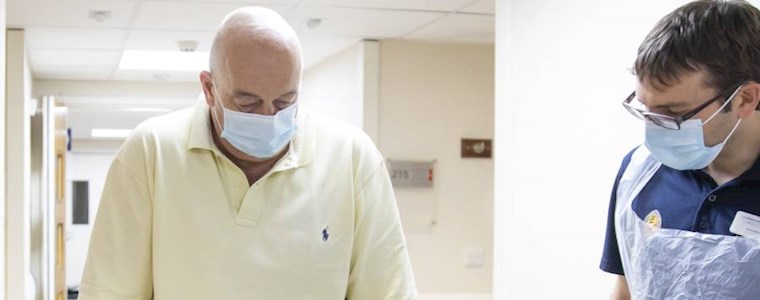
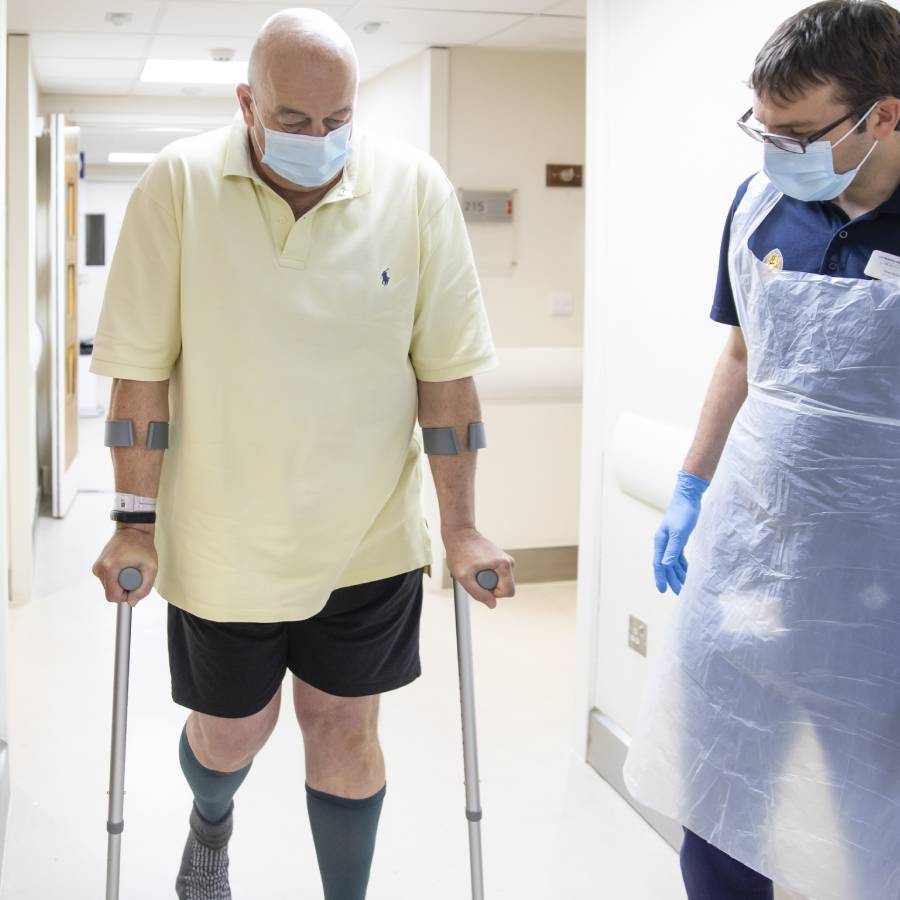
Admission to hospital and the day of your surgery
You will usually be admitted to hospital on the same day as the operation. You will receive instructions before you go into hospital to tell you when to stop eating and drinking and whether or not to take your routine medications on the day of surgery. You will stay for about 2-3 days.
You will be fitted for knee length compression TED stockings and the use of Flowtron gaiters (massage devices to keep the blood moving in your legs) will be demonstrated. Flowtron gaiters are only for use in the hospital. You may need further tests and X-rays.
You will be assessed by your anaesthetist and your consultant will also visit you to mark the leg that is being operated on and answer any questions you may have. You will be asked to sign a consent form for the operation if you have not already done so. The physiotherapist will demonstrate the exercises you will need to practise after your surgery.
Primary operations usually take about one hour. Revision surgery may take two or more hours. After your surgery, you will be closely observed in the recovery room for around 45 to 60 minutes, and will continue to be monitored regularly when you are back in your room.
A foam wedge may be placed between your legs depending on the type of prosthesis. You may have to lie on your back at night to prevent any possible dislocation of the hip caused by crossing your legs.
A drain will remove any excess blood from your wound. You will have an intravenous infusion of fluid in your arm and another cannula will provide intravenous access for medications. While in bed, you’ll be encouraged to perform your exercises and you’ll be helped out of bed for the first time usually on the same day as your surgery or early the next day.
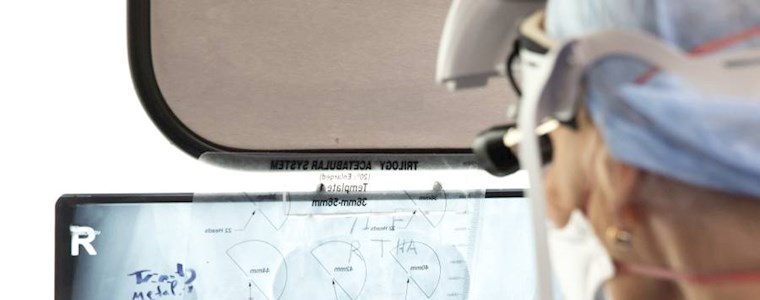
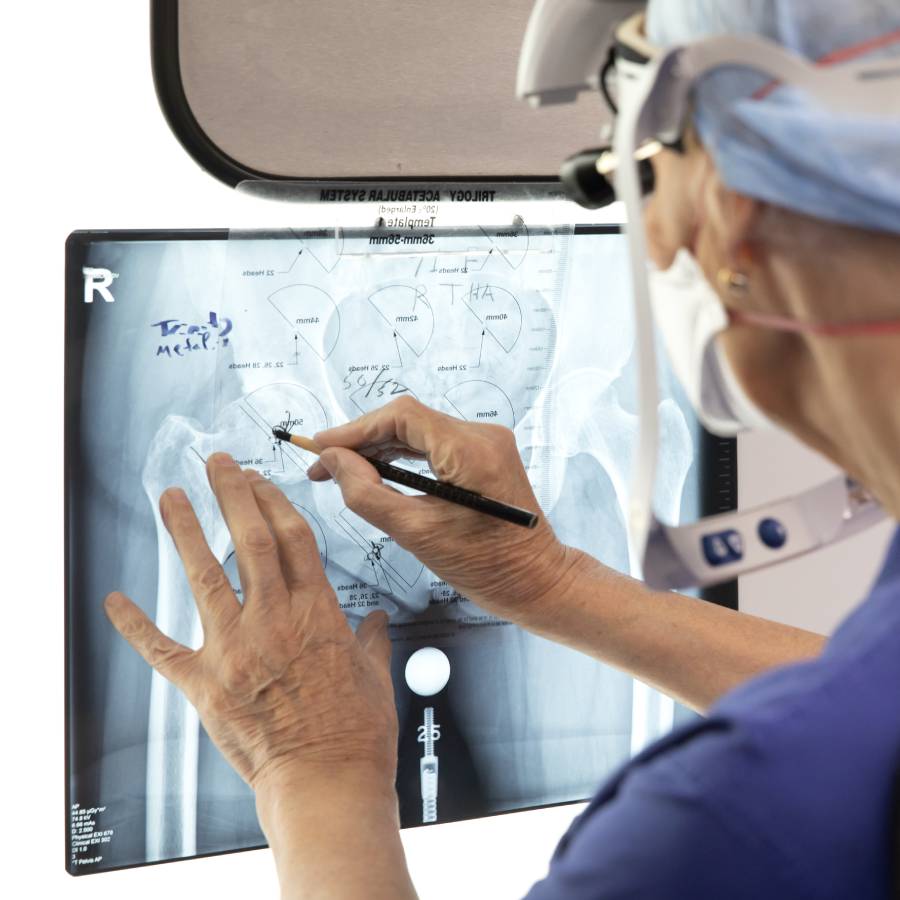
Before surgery- FAQs
What must I do to prepare for hip replacement surgery?
Health: You should be in the best possible health before your surgery and try to lose weight if you are overweight, as this will benefit the longevity of your hip and your overall health. However, we understand that loosing large amounts of weight before surgery can be difficult for some people due to reduced mobility.
Smoking: We recommend that you stop smoking prior to your surgery, or at least cut down as smoking can affect the way your blood flows, delaying healing and slowing recovery. For information on how to stop smoking, visit www.nhs.uk/smokefree
Teeth: Make sure that you get any dental problems fully treated before your surgery. Although uncommon, infections can result from dental procedures if bacteria enter your bloodstream.
You need to notify The London Hip Unit if you develop any kind of infection in the week before your surgery. If you have eczema or psoriasis and develop a patch over the area, which will be operated on, please contact us immediately.
Do I need to stop taking my medication before my surgery?
We will discuss with you at your pre-assessment appointment which of your drugs you should stop taking before surgery.
Do not stop medication without first consulting The London Hip Unit or your GP.]
Where do I get the equipment that I will need following surgery?
If you have your own crutches or sticks you can take them into the hospital otherwise the hospital can sell them to you whilst you are an inpatient. Other equipment can be purchased from the hospitals, local disability shops, and large chemists, Amazon, Argos or the Red Cross. If you want to hire equipment, Direct Mobility Hire hires out equipment within the M25 (Tel: 0800 092 9322). It is best to wait until after your pre-assessment appointment to purchase equipment, as the nurse will advise you on what you will need.
What shall I pack to take to hospital?
What type of anaesthetic will be used during my operation?
Your anaesthetist will explain and assess which anaesthetic methods will be most suitable for you.
Surgery can be done under either a general or spinal anaesthetic. This is normally a decision made with yourself, surgeon and/or anaesthetist.
Further information on anaesthetics is available at: www.youranasethetic.info or www.aagbi.org.
Please let us know if you have a strong preference about your anaesthetic.
After surgery - what you need to know
What you can expect in hospital following surgery
You will be assessed regularly for pain and nausea. You may have an intravenous drip for pain control which will be replaced by tablets by the second day after surgery. You will also have intravenous hydration until you are able to drink normally. Your blood will be checked to see if you are anaemic, in which case you may need a blood transfusion or iron tablets.
Your hip will be X-rayed to check its position and to be used as comparison with future X-rays.
The physiotherapist will supervise and encourage your bed exercises and help you to walk. By day three you'll usually be shown how to manage stairs.
By the time you leave hospital you should be moving safely and independently with crutches or a stick. Your wound should no longer require a dressing.
What you can expect at home following surgery
Following surgery, you will feel fatigued as the body is using its energy to heal itself. You will experience various degrees of discomfort and stiffness which will lessen in intensity as your rehabilitation progresses.
It is also usual to have some swelling to the operated leg following surgery. This may start around the hip but moves down the leg as people start to move around. The swelling will gradually diminish but may take many months.
You will be advised about the exercise programme you need to follow once you are home. Your instructions may vary depending on your implant and the operative technique used. You will receive individual instructions from The London Hip Unit team.
Pacing yourself is the key to recovery after surgery. When you first go home you may find you do a little more than when you were in hospital. For example, simple tasks like going to the toilet often involve greater distances. Remember to take this into account when planning your activities.
Generally, by the time you go back to for your first check-up you will be able to move around indoors without a walking aid, though you may still need one outside. However, it is important that you follow the instructions we give you. If you are unsure what you are aiming for with regards to mobility please get in touch with us.
Most patients find that the pain in their leg and hip lessens immediately and continues to do so in the weeks following surgery, but may still experience some minor pain and stiffness for up to four months. Most people generally continue to take regular pain medication for the first three weeks.
What to avoid doing in the first four weeks after surgery
It is very important to prevent your hip dislocating in the first four weeks after surgery. Depending on the approach and the findings at surgery, you may be advised to avoid the following:
- Do not bend your hip more than 90 degrees: avoid sitting on low chairs, toilets or on highly cushioned seating; do not bend straight over to pick things up from the floor; do not try to put on your own socks
- Do not cross your legs over the midline of your body: do not cross your legs at the knees or ankles; lie on your back in bed rather than your sides or your tummy
- Do not twist your hips or your operated leg
- Avoid lifting anything heavier than a kettle
- You will be given a physiotherapy booklet with full details.
Post Op FAQs
What long term care will my hip replacement require?
A check-up and a hip X-ray is usual at 4-6 weeks after surgery, then after a further 3-6 months, then after a year and ideally at least every five years. This is essential to monitor the results of your surgery and give you any further advice on the care of your hip replacement. Any prosthesis wear or damage to the bone around the hip replacement can often be seen on X-ray before the individual is aware of any symptoms.
You need to notify any doctor or dentist treating you that you have a hip replacement. There is a slight possibility that an infection elsewhere in your body could travel via your blood stream to the hip replacement. We used to advise antibiotics should be taken prophylactically before dentistry in post THR patients but currently for most dental procedures this is not necessary
We generally advise all our patients that although the risk is very small, it is up to individuals and their dentist to decide whether to take antibiotics prior to dentistry.
Patients with an increased risk of blood stream infections may be recommended to take antibiotics prior to dental treatment. These include people with rheumatoid arthritis, systemic lupus erythematosus and HIV. You will be advised if you are in this category.
You will be given further advice regarding what long term activities you can and cannot do with your hip replacement at your 4-6 week post-surgery appointment.
Who do I contact if I need help or have a query?
You can contact The London Hip Unit Team during office hours on +44 (0)20 7908 3709.
Out of these hours, please contact the hospital where you had your operation.
The Princess Grace Hospital
Tel: +44 (0)20 7486 1234
Your GP will also be able to help you. In an urgent medical emergency, please contact the emergency services on 999.
Who do I contact if I have any feedback about my care, treatment or experience?
If your feedback is regarding the care you received at the hospital when you were an inpatient, please contact the hospital directly. For any other feedback regarding your experience at The London Hip Unit, please contact us directly.
Get in touch
We are available to take your call during office hours, 9am - 5pm, Monday to Friday.
E: londonhip@hcahealthcare.co.uk
T: +44 (0)20 7908 3709